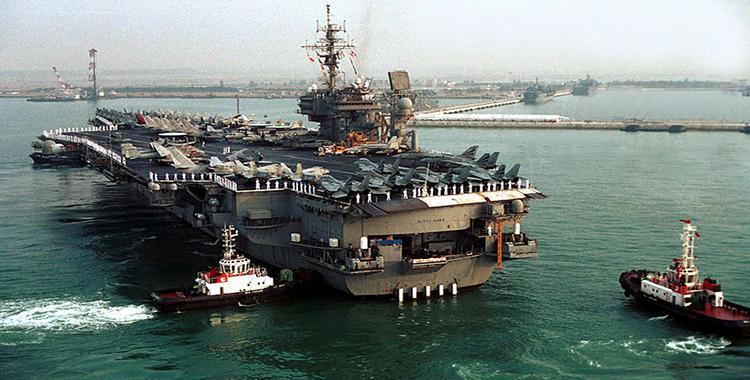Over the course of his first administration, President Barack Obama has subtly made a dramatic shift in American foreign policy. While notably drawing down the wars in the Middle East, he has quietly shifted our focus to Asian-Pacific region.
Under Obama’s foreign policy plan, 60 percent of U.S. naval assets will be concentrated in the Asian-Pacific region by 2020, a move that has not been popular with the ruling party in China. On top of that, he has strengthened alliances with key regional players like Japan, South Korea, and Taiwan while also generally beefing up security in the area. For example, a new military base has opened up under the Obama administration in Australia and is home to 2,500 U.S. Marines.
Despite these aggressive moves, the current administration has tried very hard to keep up cordial relations with China. It is the now the seemingly ageless “Chinese enigma.” While China is one of the world’s fastest growing countries, and America’s fastest growing geo-political adversary, they are also one of our biggest trading partners, and we are in massive amounts of debt to them.
Obama’s quandary is a sticky one. The U.S.-China relationship is the farthest thing from simple. Both nations rely on each other for the functioning of their economic systems; the Chinese need our business and we need their money. To break the current pattern would be devastating to both economies, and thus the world economy. However, China is a huge, wealthy, powerful, and rapidly expanding authoritarian state. They stand opposite of most things America stands for, and see us as a potential obstacle to their growth, while we see them as a threat to the current balance of power.
America is also not the only nation of the two that is currently undergoing political change. While Americans decided last night who we want to run our country for the next four years, later on this week there will be a transition of power in China. While not quite as democratic (the new Communist Party general secretary, Xi Jinping, was already named five years ago by the party,) this transfer of power is immensely important.
China is going through a period of immense social change. The burgeoning middle-class is no longer happy with the status quo domestic policies like censorship, and protests and unrest are beginning to spread through the country. While so far unwavering, the Chinese government has not been completely oblivious to the morphing social structures and their ramifications. Even the current Chinese premier, Wen Jiabao said earlier this year “Without successful political structural reform, new problems that have cropped up in China’s society will not be fundamentally resolved.”
Despite Wen’s words, it is unclear what path China’s new leadership will take. The Communist Party is extremely secretive. So secretive, in fact, that only the highest ranking party members know the process of choosing a new leader. Even now that Xi has been chosen as the new leader of China, the outside world knows virtually nothing about him or his plans. Some analysts believe that he may be welcome to liberal reforms. However, it is known that Xi has close ties to the military, which means he may turn to force to resolve any issues that might arise during his rule, whether it is domestic or foreign. His military background could also make him an aggressor to the rest of the world, relying on successful military campaigns to cover up a potentially flawed domestic policy.
Simply put, American interests abroad are changing. The Middle East, while it will not fall out of the picture entirely, will be put on the back burner. The future of American foreign policy is now Asia, reflecting the rise of China. At this point in time, we are at a major crossroads in our relationship with China, and this week will be huge in determining how that relationship moves forward from its current standing. A lot of the implications for the future rest on the shoulders of China’s new rulers and whether or not they want to modernize their political system and maintain cordial ties with America and the rest of the world.















The Suffolk Journal • Nov 8, 2012 at 9:20 pm
[International News] Obama Foreign Policy shift toward Asia http://t.co/sIzn9d9a